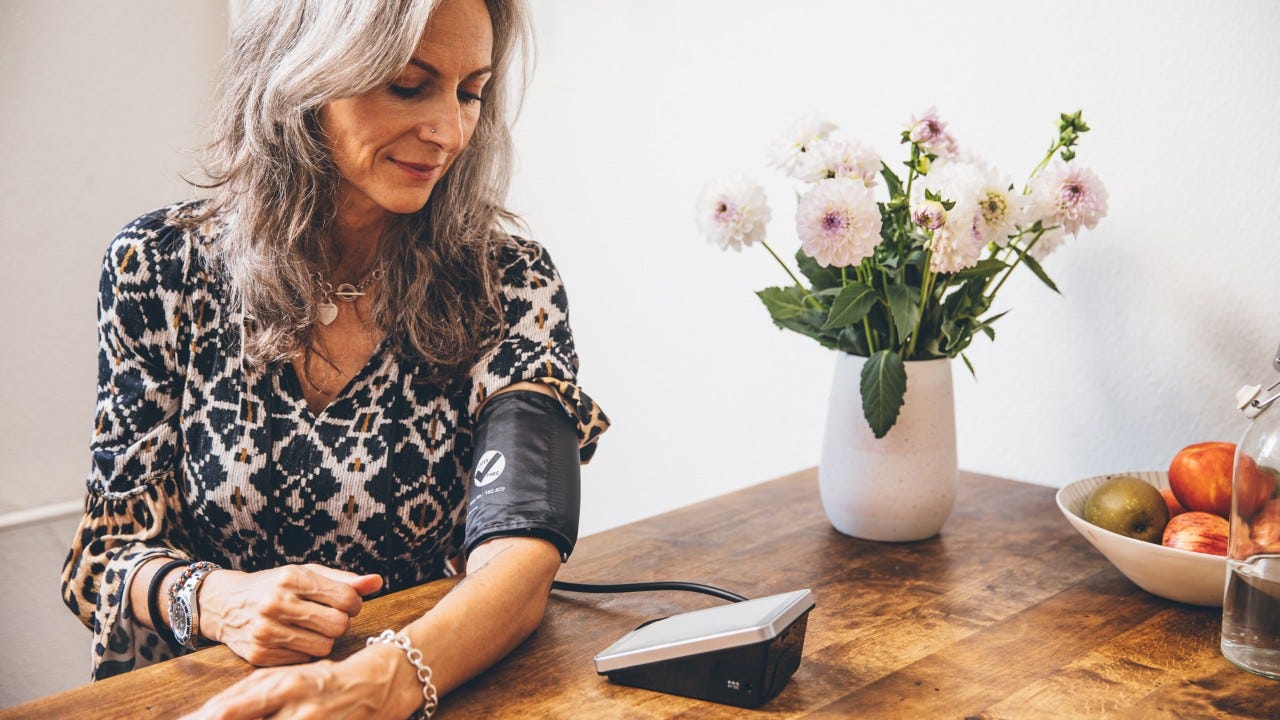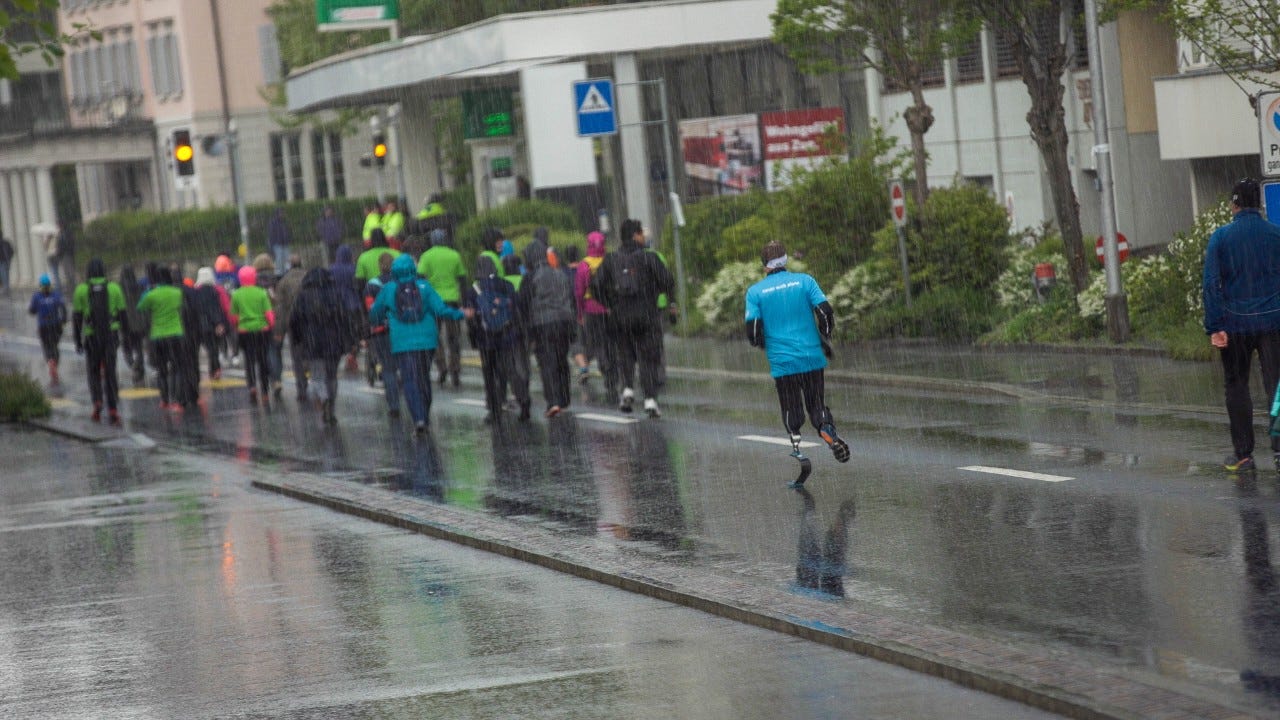Hypertension: what you need to know about high blood pressure
High blood pressure is a common ailment – and hard to detect. In most cases, the symptoms of hypertension are only felt when it has already caused some damage.

Your blood pressure reading is based on a high and low value. These two values are taken at different times during the heart beat. With every heartbeat, the heart forces blood through our blood vessels. The pressure created here is the upper, systolic blood pressure. When the heart muscle relaxes again between beats, the pressure in the blood vessels also decreases. This pressure forms the lower value, the diastolic blood pressure.
Normal blood pressure, elevated blood pressure, high blood pressure: when do you need to take action?
Ideally this value should be approximately 120/80. A permanent measurement of 140/90 and above is considered to be high blood pressure and requires treatment. “The threshold values have been defined on the basis of major international studies”, explains Isabella Sudano, senior consultant at Zurich University Hospital and president of the Swiss Society for Hypertension.
“These studies have shown that using medication to reduce blood pressure for patients who have a value of 130/80 does not deliver benefits in the long term. However, patients with a value of 140/90 clearly benefit from taking medication. They suffer fewer heart attacks and strokes and are less likely to develop an occlusive cardiovascular disease.”
High blood pressure: Symptoms are felt very late – if at all
Hypertension, the medical name for high blood pressure, is widespread. “The most recent statistics suggest that around one in three people suffer from hypertension. his figure rises to one in two among 65 or 70 year olds. The problem is that we don’t notice high blood pressure,” explains Isabella Sudano. But it leaves traces in the body.
It only becomes noticeable when it is clearly above the threshold values. At this point, however, the body is often already damaged and patients may also suffer from breathlessness, shortness of breath, chest pains as well as problems with vision and sensitivity. Taking your blood pressure regularly is important to make sure things don’t escalate in this way and to reduce blood pressure before it’s too late.
Video: Cause, symptoms and treatment of high blood pressure
High blood pressure sneaks up on you
Blood pressure is not always exactly the same. It fluctuates during the day – controlled by the brain, autonomic nervous system and organs such as the kidneys and adrenal glands. Blood pressure is highest in the morning just before getting up, provided that you’ve slept. That’s why most heart attacks or strokes occur at this time. Blood pressure then decreases during the day, with short peaks depending on your level of activity, for example if you do sport or are stressed.
Blood pressure should be much lower at night during sleep. This can be demonstrated, for example, by taking a 24-hour measurement with an automatic measuring device that can be obtained from the doctor. “At night, your blood pressure should be 10 to 20% below your daily value”, explains Isabella Sudano. “If this is not the case, your doctor should take a closer look. Do you perhaps suffer from a sleeping disorder such as sleep apnoea? In these cases, the heart is unable to recover at night, and this can be very dangerous in the long term.”
If the blood vessels lose their elasticity due to illness or old age, blood pressure will increase. The blood vessels find it harder to withstand the pressure, thus increasing the pressure on the vessel walls. At the same time, the vessels are unable to relax properly between heart beats, which is why the lower blood pressure value also increases. This permanent strain takes its toll on the vessels, with the result that the heart, brain, kidneys and eyes suffer.
Preventing high blood pressure
It’s best to prevent high blood pressure by adopting a healthy lifestyle, through a healthy balanced diet, not smoking, maintaining a healthy weight, getting plenty of exercise, and achieving a good balance between stress and relaxation. “Once you’ve got chronic high blood pressure, changing your lifestyle alone is not usually enough to reduce it,” explains Dr Sudano. “However, a healthy lifestyle does significantly reduce the risk of suffering a heart attack or stroke, so it is certainly worthwhile.”
High blood pressure? Permanent reduction is a must
That’s why medication is often prescribed to reduce high blood pressure. Finding the most effective medication is often a case of trial and error under medical supervision and you’ll need a little patience. Often, combinations of active ingredients are the most effective.
In order to be able to counteract high blood pressure at an early stage, the Swiss Heart Foundation recommends that everyone over the age of 18 should measure their blood pressure at least once a year. Isabella Sudano recommends that her patients take the measurement themselves at home. “It is generally very important to measure your blood pressure independent of the doctor, because an individual measurement isn’t a diagnosis. Hypertension can only be confirmed through several elevated values.”
Find out here how to measure your blood pressure correctly. The Schweizerische Herzstiftung (Swiss Heart Foundation) is also a good source of information.
… your heart can continue beating outside your body? The heart generates its own electrical impulses. Provided that it is supplied with oxygen, it can keep beating outside the body.
… “white coat syndrome” is a common phenomenon? This is when your blood pressure increases just before your blood pressure is measured by the doctor. The reason for this is that you are tense and nervous before the doctor’s visit.
... children’s blood pressure is lower than that of adults? Doctors have to calculate children’s blood pressure individually depending on the age and size of the child. An average four-year-old boy’s blood pressure, for example, is a maximum of 110/70. This value is even slightly lower for girls. The threshold values for adults only apply from age 18.


